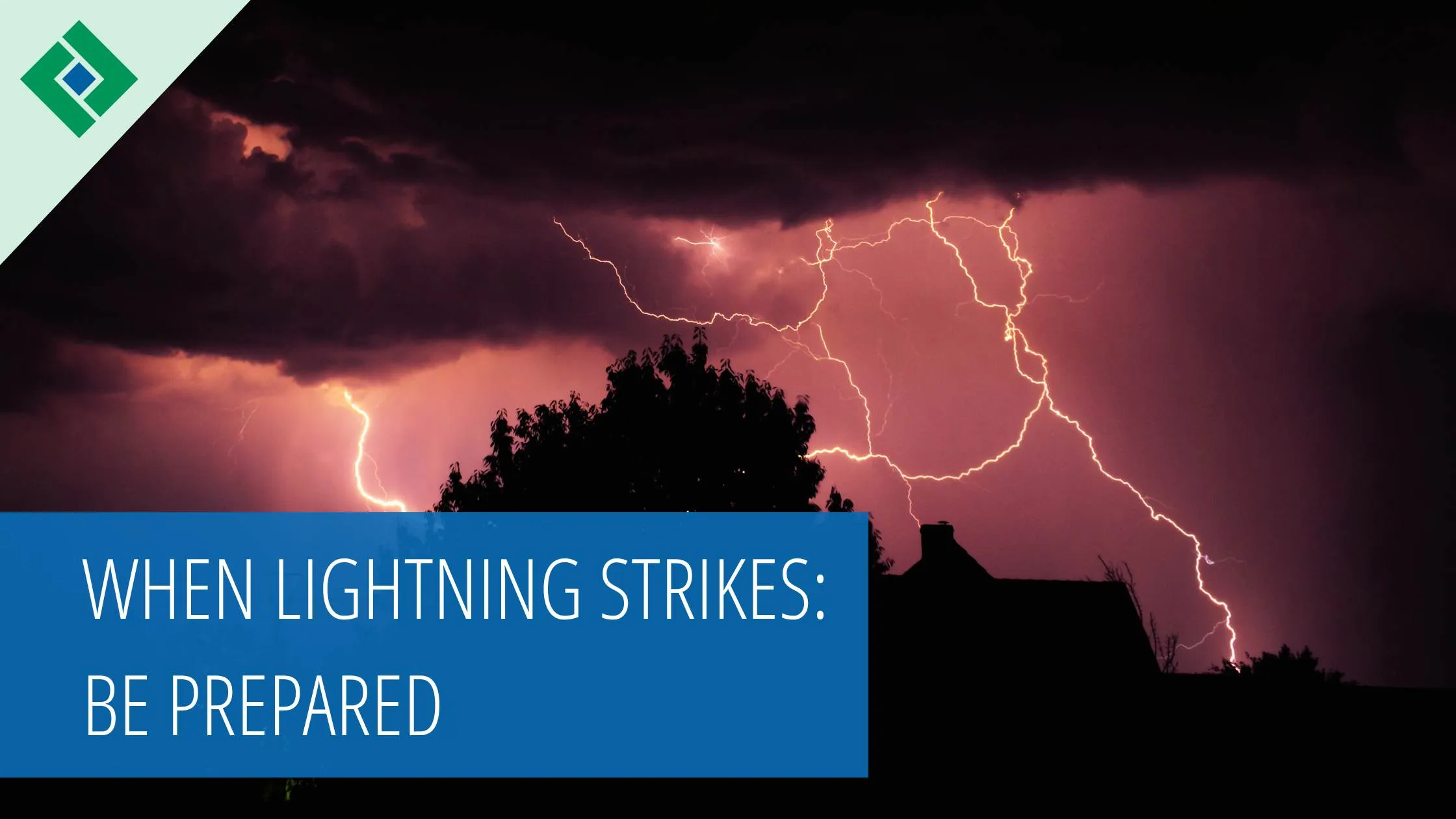When Lightning Strikes: Be Prepared

Florida is known for its sunshine, beaches, and warm weather but did you know it is also the lightning capital of the Unites States? With an average of 1.2 million strikes per year, Florida experiences more lightning strikes than any other region. Although most lightning strikes happen from June to September due to afternoon thunderstorms, Floridians are at risk of lightning related injuries any time of year. Being prepared for lightning strikes by understanding the risks and taking proper precautions is essential in lightning safety.
Recognizing Lightning Warnings
A common myth is if it’s not raining or there aren’t dark clouds overhead, you’re safe from lightning. However, according to the National Weather Service, lightning can strike as far as 25 miles away from its parent thunderstorm.
A key factor in lightning safety is staying informed and recognizing warning signs before a storm rolls in, allowing you to act quickly. A lightning prediction or detection system alerts early warnings by strobe lights and a loud alarm horns, so you can take preventive measures and get to shelter before lightning strikes. You have probably heard the alarm before as they are installed in parks, sports fields, and community pool areas. One long horn blast, lasting about 15 seconds, indicates possible lightning in the area and three short horn blasts signal the “all clear.”
“When Thunder Roars, Go Indoors”
It is important to take all the necessary safety measures to protect yourself from lightning while enjoying the outdoors. Lightning safety is knowing no place is safe outdoors when lightning is present.
- Plan Ahead: When planning outside activities, plan ahead for a safe place to take shelter during a thunderstorm.
- Seek Shelter Immediately: If you can hear the sound of thunder, then you are within the striking range of lightning and you must immediately find shelter.
- Avoid Open Spaces: Standing in open fields, on high ground, or rocky overhangs such as cliffs increases the risk of being harmed by lightning.
- Steer Clear of Tall Objects: Trees, towers, and poles attract lightning. The second leading cause of lightning fatalities is staying underneath trees.
A note on crouching if you are caught outside without shelter during lightning: The National Weather Service (NWS) stopped recommending the crouch in 2008 because it does not lower your risk and provide an adequate amount of protection.
Importance of Seeking Proper Shelter
Another factor in lightning safety is seeking proper shelter. The safest locations during a thunderstorm include:
- Fully Enclosed Buildings: Substantial buildings such as homes, offices, and schools with electricity or plumbing.
- Hard-Topped Vehicles: If no buildings are nearby, a car with a metal roof offers safety. Keep the windows up and avoid touching the metal parts inside the vehicle.
- Avoid Small Shelters and Open Structures: Rain shelters, picnic pavilions, bus stops, small sheds, and tents do not provide protection from lightning.
- Have Patience: Remain in the shelter and wait at least 30 minutes after the last lightning flash or you hear the last sound of thunder before going back outside.
Stay Safe from Lightning Indoors
Being indoors does not guarantee safety unless you take a few preventative measures to stay protected and avoid anything that conducts electricity.
- Avoid Using Electronics: Remember to stay away from corded phones, computers, and other items with an electric source that puts you in direct contact with electricity.
- Refrain from Using Plumbing: Avoid plumbing, sinks, faucets, and baths. This means do not shower, wash dishes, or use sinks. This is a perfect excuse to take a break from house chores!
- Stay Away from Doors and Windows: Glass and metal conduct electricity so staying away reduces your risk of injury.
Safely Enjoy all the Outside Activities Florida has to Offer
By staying informed, recognizing danger signs, and following outdoor and indoor lightning safety measures you can significantly reduce the threat of lightning related injuries.
Make lightning safety a priority and ensure your home and loved ones are prepared when lightning strikes. Contact your insurance agent today to make sure you're prepared to withstand any potential weather-related disaster. If you're not already insured by us, you can quickly and easily get a quote online.
Florida Peninsula Insurance Company will be there when you need us most.

